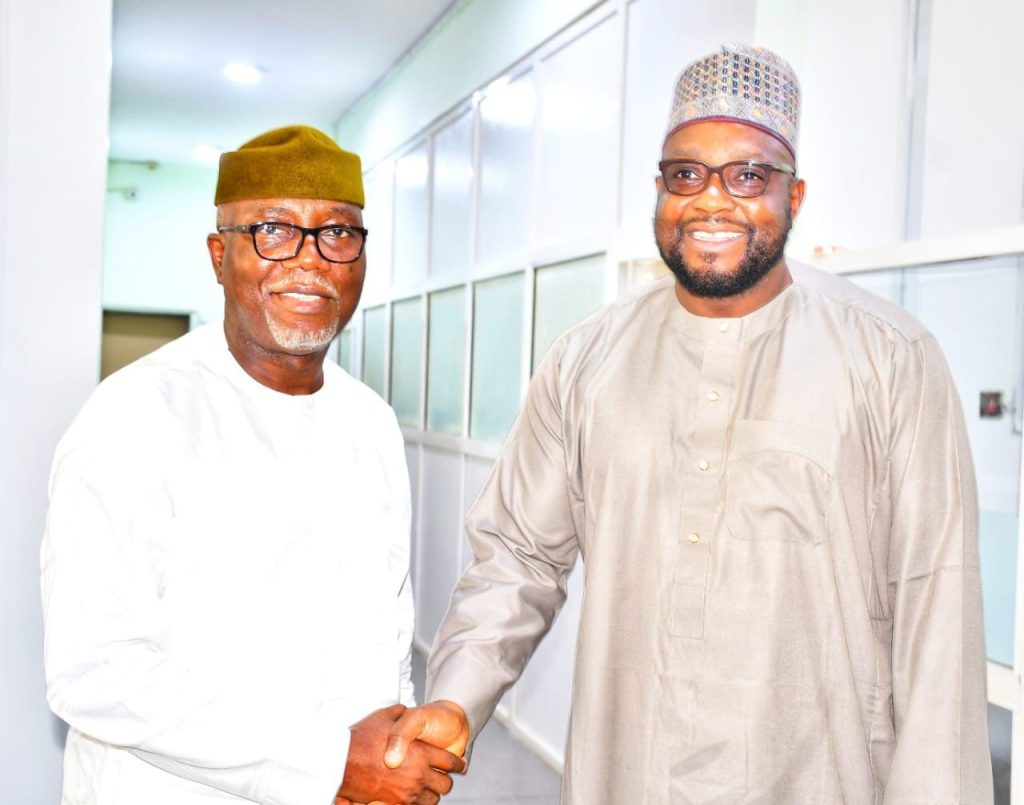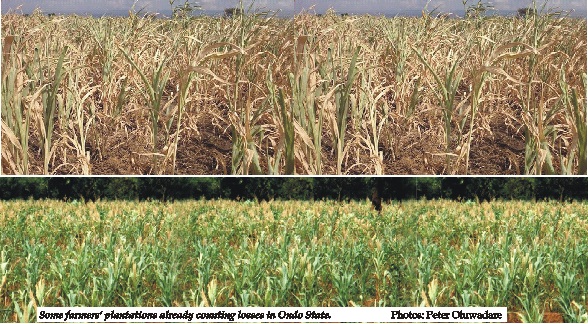Fuel subsidy removal and other matters arising
By Babatunde Ayedoju
|
The Nigerian media space for the past one week has been full of stories about fuel subsidy removal and the attendant effects. That is what is trending at the moment. It all began during the inaugural address of the new president, Asiwaju Bola Ahmed Tinubu, on May 29.
During his address, Asiwaju had said, “We commend the decision of the outgoing administration in phasing out the petrol subsidy regime which has increasingly favoured the rich more than the poor. Subsidy can no longer justify its ever-increasing costs in the wake of drying resources. We shall instead re-channel the funds into better investment in public infrastructure, education, health care and jobs that will materially improve the lives of millions.”
Nigerians interpreted this message to mean that the fuel subsidy regime is over. A lot of news outlets actually carried the headline “Fuel subsidy is gone.” That same Monday, queues resumed in filling stations with the pump price skyrocketing from the official price of N185 to about N500. Reports even had it that fuel was sold for higher prices in some parts of the country. This development has also led to an increase in commercial bus, taxi and motorcycle fares, as the development also takes its toll on transporters.
Several reactions have trailed the decision of President Tinubu to remove the fuel subsidy. For example, the Nigerian National Petroleum Corporation (NNPC) Limited gave kudos to the Federal Government for the removal of the subsidy, adding that the government owes the company 2.8 trillion naira ($6bn) for the petrol subsidy.
NNPC Limited was saddled with the payments for subsidy by former President Muhammadu Buhari with the company carrying the cost in its books as petrol under-recovery. The company however deducts the cost from the revenue due to the Federation Accounts from the sales of Federation Crude Oil.
Speaking to journalists shortly after the announcement was made, the Group Managing Director of NNPCL, Mele Kyari, said the organisation “welcomes the decision of Mr. President to announce that the subsidy on PMS (premium motor spirit) is over. This has been a major challenge for NNPC continued operations. We have been funding the subsidy from the cash flow of NNPC since the government is unable to defray the cost of the subsidy that is due to the corporation.
“We believe that this will free up resources for the NNPC to do the great work that this company is doing for our country and it allows us to continue to operate as a commercial entity”.
While assuring that there is enough fuel supply in the country, Kyari admonished Nigerians not to be involved in panic buying.
Also speaking, the Chief Executive of Nigerian Mainstream and Downstream Regulatory Authority, Faruk Ahmed, said that with the removal of subsidy, there would be no price cap on the sale of petroleum products in the country.
Ahmed said President Tinubu’s pronouncement in his inaugural speech on the removal of subsidy was in line with the law.
While stating that the Federal Government had not been financing fuel subsidy since 2022, Ahmed added that in the face of current economic realities, there was no way Federal Government could continue to afford subsidising fuel.
Addressing journalists on his first day in office at the Presidential Villa in Abuja, Vice-President Kashim Shettima said Nigeria needed to get rid of fuel subsidy, arguing that the subsidy regime was not benefiting Nigerians but had only been subsidising the lifestyle of the rich. He assured that despite expected opposition from beneficiaries of fuel subsidy, President Tinubu would frontally address the menace.
Members of the House of Representatives, at a plenary session, also threw their weight behind subsidy removal, appealing to Nigerians to be patient with the new government.
Meanwhile, labour unions kicked against the move by the Federal Government, citing a lack of transparency and a history of corruption in government spending. The Trade Union Congress of Nigeria, TUC, in a statement by its President and Secretary General, Festus Osifo and Nuhu Toro, respectively criticised the new government for not engaging in a robust dialogue and wide consultation with Nigerians before taking that step and demanded that the presidency should tarry a while before implementing its decision.
Though the presidency held a meeting with representatives of the Nigeria Labour Congress (NLC) on Wednesday, it ended without an agreement being reached. Presidential spokesman, Dele Alake, told journalists that the talks would continue at a later date.
Obviously, there have been some misconceptions about the issue of fuel subsidy removal, most likely because a lot of Nigerians are not well-informed about it. First, the issue of fuel subsidy removal did not start with the new government but has been going on for long. In January 2012, the Federal Government announced fuel subsidy removal, making fuel price to move from N65 to N140. The protests that followed forced the government to reintroduce the subsidy and the price of petrol came down to N90.
The Muhammadu Buhari administration, at a point, announced its plan to remove the fuel subsidy and replace it with a monthly N5,000 transport grant for poor Nigerians but the government later suspended the plan after the Nigeria Labour Congress (NLC) and Trade Union Congress (TUC) threatened to embark on mass protests.
It must also be noted that three of the major contenders at the February 2023 presidential election promised to remove fuel subsidy if elected into power, as they all described it a practice that encourages fraud in the oil industry.
The idea behind fuel subsidy is that the Federal Government should bear part of the cost of making fuel available to the citizens after it has been refined mostly in Europe. About 70 million litres of fuel are said to be consumed daily by over 200 million Nigerian citizens. The history of oil subsidy in Nigeria dates back to the 1970s when the federal military government introduced it to cushion the effect of rising global oil prices on Nigerians. The Nigerian government formalised subsidy in 1972 through the Price Control Act which regulates the prices of items, including oil.
However, since that time, a lot of suspected fraudulent activities have put a question mark of the justification for the fuel subsidy that has continued to gulp trillions of naira from the Nigerian government’s treasury.
The Buhari administration left a 77 trillion naira ($167bn) debt to local and foreign creditors. Already, 96 percent of the government’s revenue is being used to service debt and there are fears the government’s cash crunch could worsen if subsidy payments continue. Since the depletion of state coffers, the subsidy payment under the past administration was serviced via debts, according to the former finance minister.
Several reports in the past have also indicated that all is not well with the fuel subsidy regime. In 2012, a 200-page report released by a parliamentary inquiry uncovered a $6 billion fraud, involving officials at the state-run Nigerian National Petroleum Company (NNPC) – now a limited company. Since then, governors and members of parliament have routinely called for an investigation into NNPC and a review of subsidy payments to oil marketers.
In 2015, former president Muhammadu Buhari referred to the subsidy as “fraud” and “non-existent” even though his administration retained it, spending 11.7 trillion naira ($26 billion) between 2016 and 2023.
The Mallam Ribadu’s Petroleum Revenue Special Task Force Report indicated that NNPC withheld N1.983 trillion subsidies between 2006 and 2011. This amount represents almost 40 percent of the 2016 national budget.
Also, the Farouk M. Lawal-led House of Representatives Ad hoc Committee on Subsidy Verification concluded that the subsidy regime, as operated between 2009 and 2011, was laden with colossal corruption and entrenched inefficiency.
Additionally, a subsequent report by the Presidential Committee on Verification and Reconciliation of Fuel Subsidy Payments, led by Mr. Aigboje Aig-Imoukhuede, revealed that in 2011, 197 subsidy transactions worth N232 billion were illegitimate. The previously released Forensic Audit of NNPC by Price Waterhouse Coopers showed that fuel subsidy cost Nigeria almost $10 billion between January 2012 and July 2013.
According to Dr Bayo Fasunwon from the Department of Political Science, Adekunle Ajasin University, Akungba-Akoko, while Federal Government hitherto claimed that it was paying fuel subsidy, there were insinuations in some quarters that some faceless organisations were claiming the subsidy, including those that were not supplying anything.
While noting that fuel subsidy had become a conduit for siphoning government treasury, Fasunwon said that removing it had broken the backbone of black marketers, saying that unlike in the past, we currently do not see people selling fuel in kegs outside the filling stations.
The political economy scholar noted that the fuel subsidy removal may help to generate a market for the Dangote refinery, because once marketers know that they can get refined oil at a cheaper price locally, they may not want to import it again. He added that it may also reduce the rate at which people smuggle oil from Nigeria to other countries.
“Government will be able to save a lot of money that may be used to develop our local refineries and pay minimum wage or any other palliative that government may want to come up with,” he added.
Likewise, in the words of Dr Edamisan Ikuemonisan from the Department of Agricultural Economics, Adekunle Ajasin University, Akungba-Akoko, removal of fuel subsidy is the best thing for Nigeria now. He stated that primarily, Nigeria is using loan to fund subsidy, which means that we are using loan to fund consumption, as he described subsidy as consumption in the real sense.
Secondly, he pointed out that subsidy administration was full of fraud because the government did not have a reliable means of checking the activities of the key actors.
To buttress his point that fuel subsidy is not good for our economy, Ikuemonisan said, “In a year, the budget for subsidy alone exceeds that of education and infrastructure put together, and we don’t even have the revenue to finance it. We are going to other countries to borrow money to finance subsidy of over N6 trillion, whereas we cannot borrow money to finance education, infrastructure and health. Moreso, the rich are the ones enjoying, while the poor are still in pain. Why not remove fuel subsidy and invest the money in infrastructure, especially in the rural areas?
While lamenting that fuel subsidy had been difficult for past governments to remove because it enabled some few people hold the country to ransome, the seasoned agricultural economist said that the removal means deregulation of the oil industry and it will bring in more investors, thereby,creating a healthy competition. He said, “While the government will no longer fix price of petrol, as some marketers sell at a high price, others may sell at a low price because everybody is free to choose his price.”
Ikuemonisan noted that it is going to have an adverse effect on the economy, especially on prices of essential commodities, but that will only be for a short while because what is going on now is a shock which is not unusual in economics. His words, “I am buying petrol N500 per litre now, but I know that before the end of this year I will buy it N300 per litre.”









